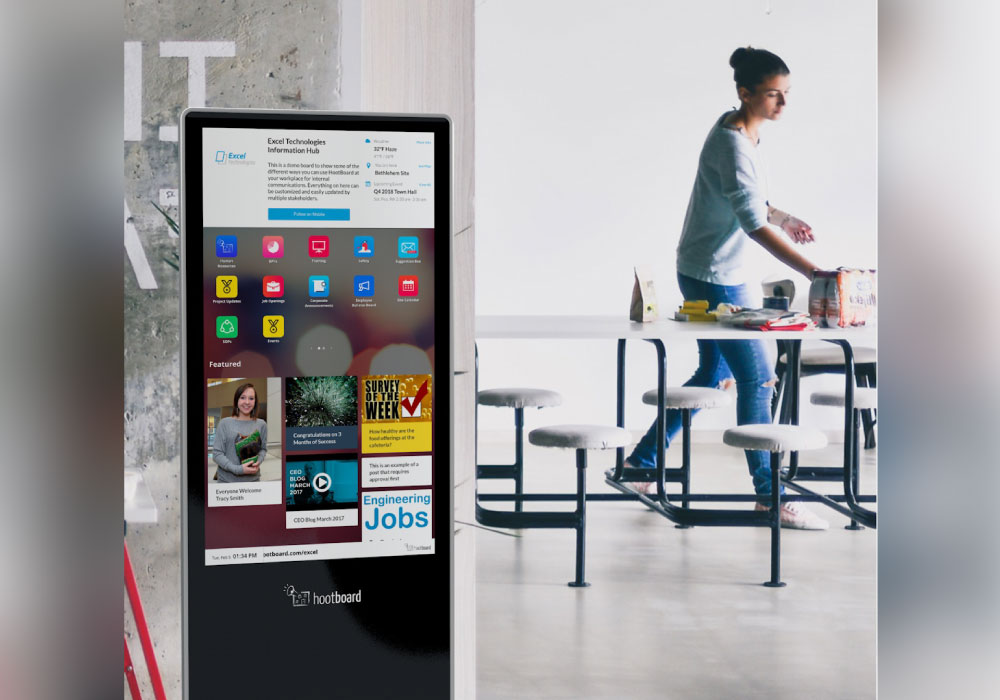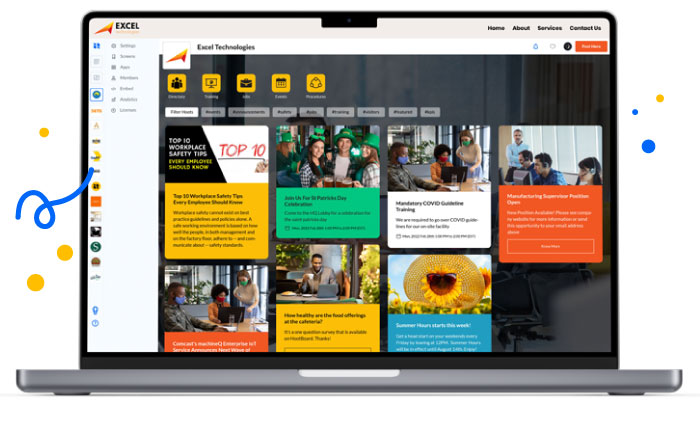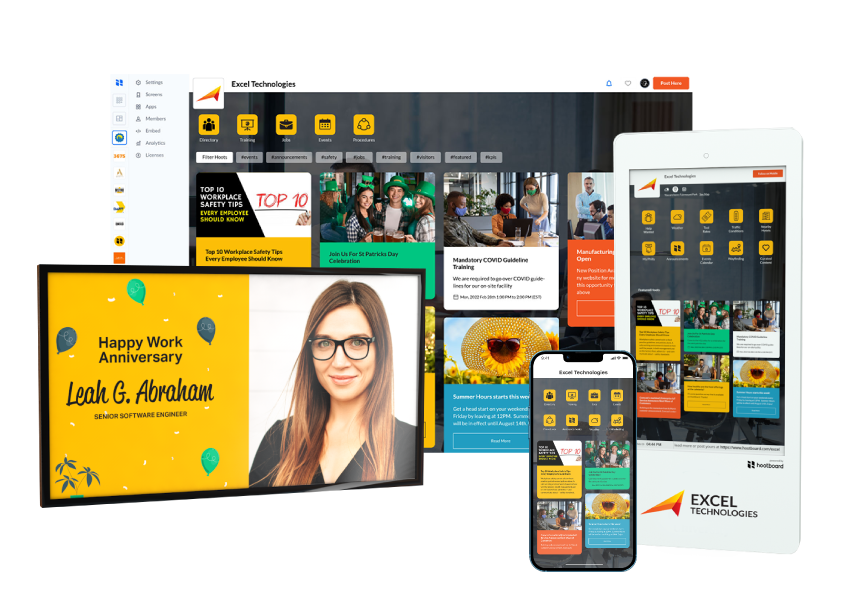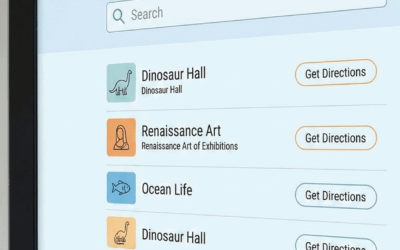Manufacturing plants are complex environments with a wide range of employees, departments, and processes. In such an environment, streamlined communication is essential to ensure that everyone is on the same page and working towards the same goals. Unfortunately, communication is often a challenge for manufacturing units. In this blog post, we will explore how digital kiosks can streamline communication in manufacturing plants and help organizations overcome common communication challenges.
Challenges in Communication for Manufacturing Plants
Poor communication can have a significant impact on productivity and efficiency in manufacturing plants. Inadequate information sharing, unclear instructions, and lack of access to training materials can all lead to errors, delays, and even accidents. Other issues include:
- Inadequate information sharing
- Unclear instructions
- Lack of access to training materials
- Poor communication between teams and departments
- Difficulty in communicating new processes or changes to existing ones
- Language barriers among workers from different backgrounds
- Misunderstandings due to cultural differences
- Low employee morale caused by unclear expectations
By leveraging digital kiosks, manufacturing plants can address these challenges and ensure that communication remains streamlined.

The Role of Digital Kiosks in Manufacturing Plants
Digital kiosks can play a crucial role in improving communication within manufacturing units. They can also be used to communicate important information such as production schedules, quality control procedures, and safety regulations. Some examples include:
- Digital kiosks can provide real-time updates, display instructions and guidelines, and offer access to training materials and resources.
- They can be used to communicate important information such as production schedules, quality control procedures, and safety regulations.
- Kiosks enable employees to stay informed of changes in processes or new initiatives quickly.
- Automated kiosks reduce the need for manual data entry while ensuring accuracy in record keeping.
- Kiosks eliminate language barriers among workers from different backgrounds due to the availability of multilingual options.
- Digital kiosks help foster collaboration between departments by providing a single source for up-to-date information accessible by all teams within an organization.
- Easy access to company policies helps ensure that everyone is on the same page when it comes to expectations on performance levels.
- The use of digital kiosks improves employee morale since they are able to get timely feedback easily without having to wait for team meetings or supervisor approvals.
By implementing digital kiosks in manufacturing plants, organizations can streamline communication and improve productivity. Employees can access information quickly and easily, reducing the risk of errors and delays. Additionally, digital kiosks can help reduce training costs by providing employees with on-demand access to training materials.

Improving Communication with Management
Digital kiosks can also play a key role in bridging the communication gap between management and employees. If you are a manager and want to deliver information, you can use a kiosk to display the details. This allows employees to access the information quickly and without waiting for team meetings or other forms of communication. Kiosks can also provide managers with feedback on how well their messages have been received by employees, helping them identify areas where they need to focus more attention.
By providing real-time updates and feedback, digital kiosks can help employees feel more connected to the organization and its goals. They can also facilitate communication between employees and management by providing a platform for feedback and suggestions.
Manufacturing Plants Have Unique Safety Challenges
Digital kiosks can help improve safety in manufacturing plants by providing quick and easy access to important safety information. They can display detailed instructions on how to operate machinery or handle hazardous materials, as well as provide safety guidelines for workers in the area. Kiosks can also be used to disseminate real-time updates regarding any changes or new regulations so that workers are always aware of the latest safety protocols. Common safety issues can include:
- Unsafe working conditions
- Poor machine maintenance and lack of safety guards
- Inadequate training on the use of machinery
- Exposure to hazardous materials and chemicals
- Slippery floors and walkways or inadequate lighting in high-traffic areas
- Lack of personal protective equipment (PPE)
- Ignoring basic safety protocols such as lockout/tagout procedures for machines
- Fire hazards from flammable materials, overloaded electrical circuits, or improper storage of combustible liquids
- Insufficient security measures for premises located in remote locations
- Improper handling and disposal of waste materials
Digital kiosks can provide employees with instant access to safety information that is specific to their job duties. This helps ensure that workers stay informed of any new safety protocols or changes in the plant’s environment so they can work safely and efficiently. Furthermore, digital kiosks can be used to display real-time updates and alerts for potential hazardous spills or other emergencies, helping to keep employees informed and safe.
Final Thoughts
Digital kiosks can play a significant role in improving communication within manufacturing plants. By providing employees with real-time access to information and resources, organizations can streamline communication, improve productivity, and reduce costs. Decision-makers in manufacturing units looking to improve communication should consider implementing digital kiosks as a part of their communication strategy. With the right tools and technology, manufacturing plants can overcome common communication challenges and achieve their goals.





